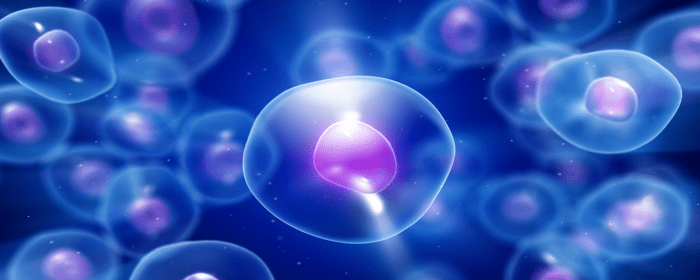Spinal cord injury (SCI) often results in damage to the spinal cord or the nerves found within the spinal column. Currently estimated to affect over 17,000 new patients each year in the United States, with 81% of these patients being male, the most common causes of SCIs are motor vehicle accidents, falls, acts of violence, and sports/recreational activities.
Current SCI treatment methods are unable to support the regeneration of the spinal cord and often lead to permanent nerve damage that affects motor and sensory function. The nature of SCI injuries often leaves patients unable to function at pre-injury levels and results in significant impacts on issues related to physical, mental, and socioeconomic health.
As more is learned about the potential benefits of regenerative medicine in the regeneration and repair of damaged cells and tissue, mesenchymal stem cells (MSCs) have emerged as potential candidates for the therapy management of SCIs; primarily because of their ability to release bioactive factors, their antiapoptotic effects, ability to inhibit scaring, and their ability to produce angiogenic effects.
Fracaro et al.’s review provides information about the damage from primary and secondary events after SCI, traditional treatments, and results of pre-clinical and clinical trials examining the use of MSCs as an SCI-tissue regeneration strategy.
Before sustaining an SCI, a wide range of inflammatory cells – all except for microglia – are found in blood vessels and throughout the spinal cord. Upon injury, it is common to observe immediate neuronal and glial death at the site of the injury followed by the development of an inflammatory process in the vascular and medullary region; it is this secondary response that results in the deterioration of the spinal cord and a general worsening of the condition. In the weeks and months following injury, remaining neutrophils and lymphocytes are found in the intravascular region, inactivated microglia remain in white matter, and macrophages are found in gray matter.
Traditional SCI treatments have demonstrated an inability to completely regenerate nervous tissue. Most of these traditional treatment methods attempt to reduce side effects and protect injured nerve tissue. Commonly used SCI treatments frequently include decompression surgery to relieve pressure and reduce hypoxia and ischemia; intravenous application of methylprednisolone sodium succinate (MPSS) to inhibit lipid peroxidation; neuroprotective agents to reduce cell dysfunction and death; and electrostimulation as a way to inhibit inflammation and reduce secondary injuries.
Despite the different techniques mentioned above, cell-based therapy is the only promising treatment aimed at regeneration. Stromal cells, and specifically MSCs, have demonstrated the potential for self-regeneration, differentiation, and immunomodulation. Although research has yet to determine exactly how MSCs promote functional recovery after SCI, they are widely thought to work through secreting different factors and biomolecules. MSCs have also demonstrated the ability to reduce inflammation, which is a very common secondary event occurring after SCI trauma.
The authors conclude this review by pointing out that a better understanding of the regenerative effects of stromal cells in the nervous system is required in order for the future development of cell-based therapies for patients with SCI.
Source: “Mesenchymal stromal cells as a choice for spinal cord injury treatment.” https://www.oaepublish.com/neurosciences/article/view/3329.


 St. Petersburg, Florida
St. Petersburg, Florida
